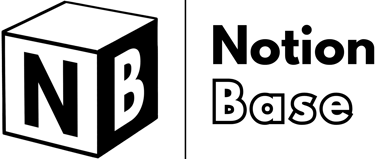Motion vs Notion: Which Productivity App Should You Use?
Comparing Motion vs Notion for task automation? This article breaks down their differences in AI scheduling, task prioritization, and project tracking to help you choose the best tool for time management and productivity.
7/23/20254 min read
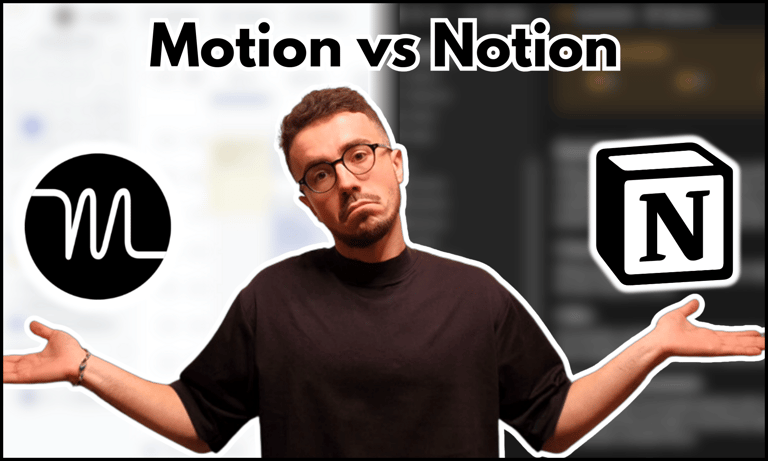

Motion vs Notion
Notion and Motion may sound similar, but they serve very different purposes. If you're comparing Motion vs Notion, it’s essential to understand their unique strengths.
While Notion is an all-in-one workspace focused on knowledge management and collaboration, Motion uses AI-powered scheduling and task automation to optimize productivity.
This guide will break down their features, use cases, and pricing to help you decide which tool best suits your needs.
Table of Contents
Motion vs Notion: Overview
Both Motion and Notion are designed to improve productivity, but they focus on different areas:
Notion: A flexible tool for organizing notes, tasks, databases, and wikis. It’s ideal for individuals and teams managing structured and unstructured content.
Motion: An AI-powered scheduling and task management app that automates calendar planning and project management, optimizing time allocation.
If you need a central hub for information and project documentation, Notion is the better choice. If you want AI to handle scheduling and optimize your daily workload, Motion is the way to go.
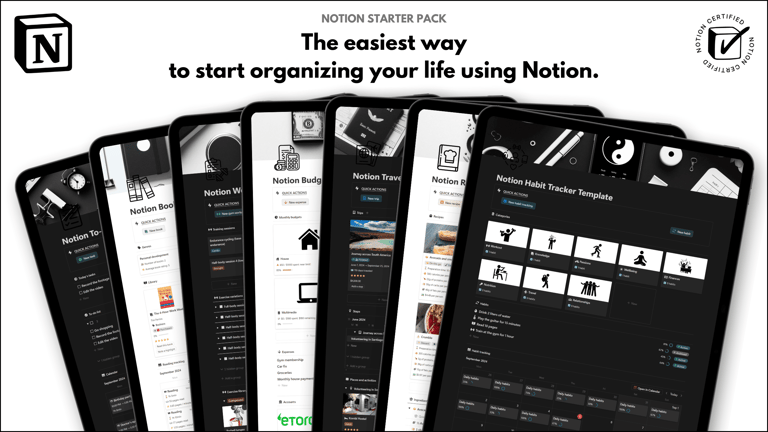

Save hours building from scratch!
Get instant access to 7 free Notion templates with the Notion Starter Pack.
Motion vs Notion: Task and Project Management
Both tools offer task management, but their approaches are very different.
Notion’s Task Management
Notion’s databases allow users to create custom task lists, with various views such as:
Kanban boards for workflow visualization
Tables and lists for structured task tracking
Calendar views for deadline management
Gantt charts (via third-party integrations) for project planning
Notion offers complete flexibility but requires manual input to set deadlines and organize tasks.
Motion’s AI-Powered Scheduling
Motion automates scheduling by dynamically prioritizing tasks based on urgency and availability. It includes:
Auto-scheduling: Adjusts your calendar in real-time based on deadlines and meetings.
Gantt chart integration: Optimizes long-term project planning.
Meeting assistant: Finds the best time slots for team meetings.
Motion eliminates the need for manual scheduling, making it great for individuals or teams with busy calendars.
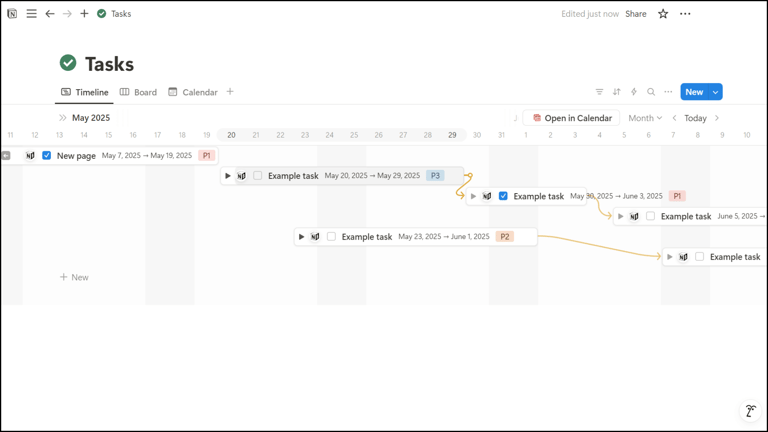

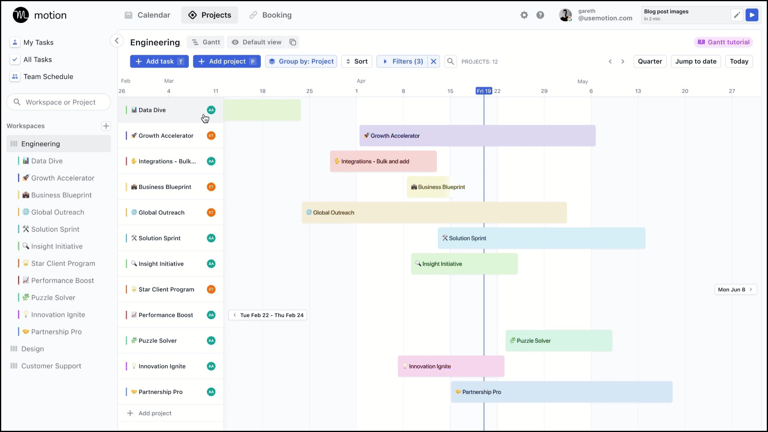

Motion vs Notion: AI and Automation
The biggest difference between the two tools is AI-powered automation.
Motion uses AI to plan your day automatically, optimize meeting times, and prioritize tasks.
Notion does not have built-in AI for automation, though it supports Notion AI ($10/month add-on) for generating content, summarizing notes, and drafting text.
If you’re looking for a tool that manages your time automatically, Motion is the winner. If you prefer full control over organization and content, Notion is better.
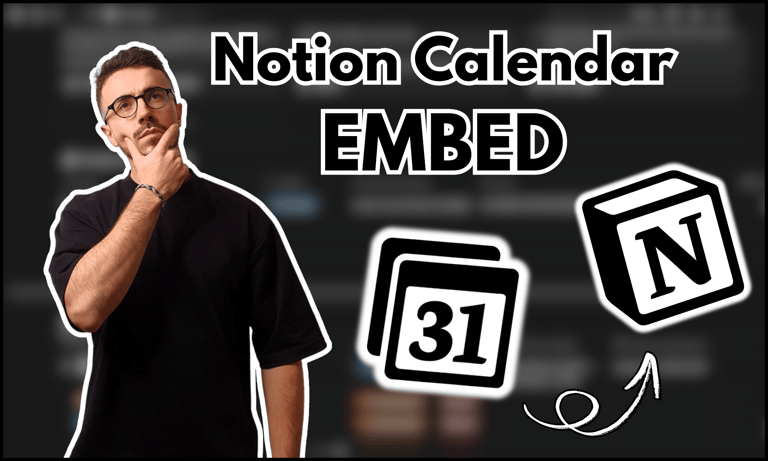

Notion also offers easy scheduling options: read this guide to learn how to embed Notion Calendar in Notion.
Motion vs Notion: Collaboration and Team Features
Both platforms cater to teams, but they serve different collaboration needs.
Notion excels in knowledge sharing, making it perfect for teams needing wikis, documentation, and project tracking.
Motion is built for team scheduling and workflow automation, reducing unnecessary planning time.
For project tracking and internal documentation, Notion is far better. For team scheduling and workload optimization, Motion is superior.
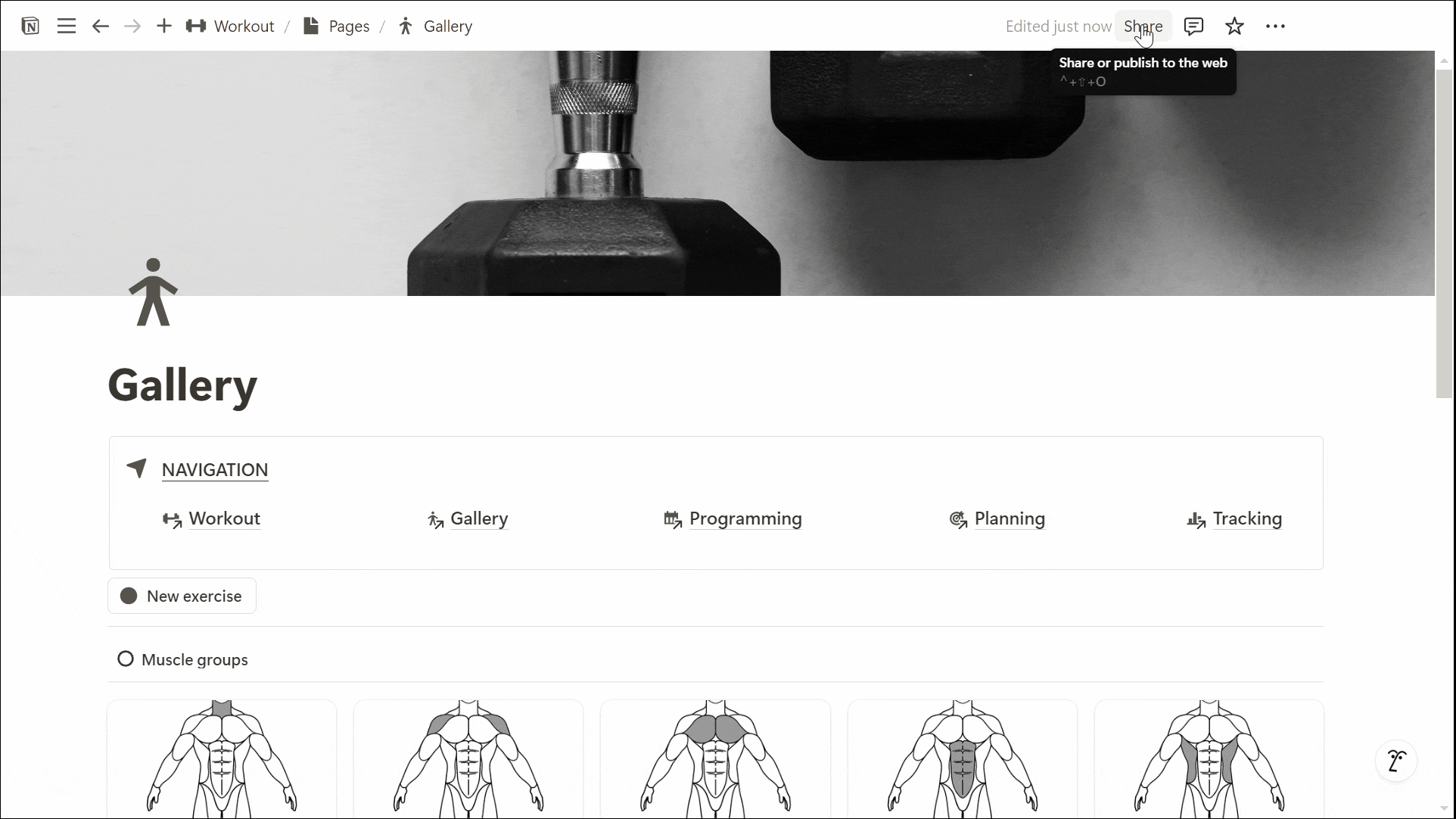

Motion vs Notion: Pricing and Value
Notion Pricing
Notion offers a range of plans, with a strong free plan for individuals. Prices exclude AI ($10 extra) and reflect monthly payments (20% discount for annual billing):
Free Plan: Ideal for personal use.
Plus Plan ($12 per user/month): Advanced collaboration for small teams.
Business Plan ($18 per user/month): Security and admin features for larger teams.
Enterprise Plan (Custom Pricing): Tailored for organizations needing compliance and security.
Motion Pricing
Motion is more expensive than Notion, but it provides AI-driven scheduling and automation. Monthly pricing for individuals is:
Basic Plan ($19 per user/month): Simple task management and AI-assisted calendaring.
Pro Plan ($39 per user/month): Adds project management and full auto-scheduling.
Business Plan ($59 per user/month): Designed for teams with complex workflows.
Business Plus Plan ($99 per user/month): Includes advanced analytics and security tools.
Enterprise Plan (Custom Pricing): For large organizations needing extensive customization and compliance.
Motion vs Notion: Which One Offers Better Value?
If you need a structured workspace with databases, wikis, and project tracking, Notion is more cost-effective.
If you struggle with time management and want AI to handle scheduling, Motion justifies its higher price.
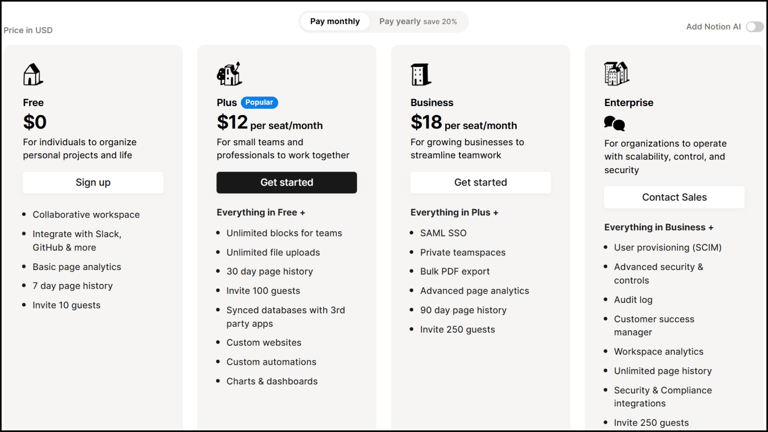

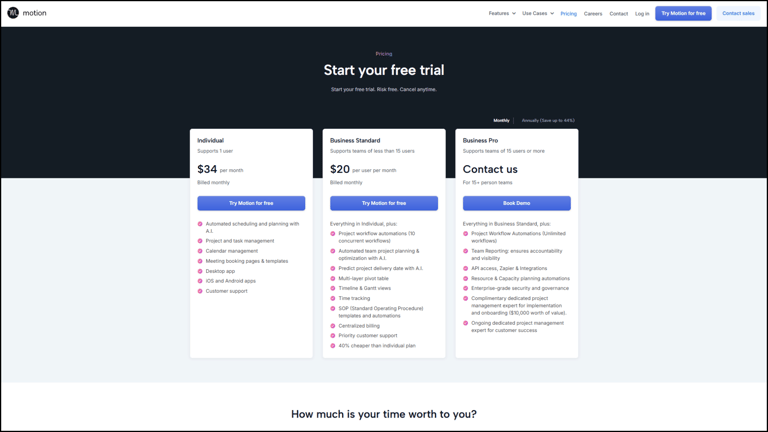


Learn more about Notion here.
Conclusion: Motion vs Notion
Choosing between Motion vs Notion depends on your workflow:
Choose Notion if you need a versatile, content-focused tool for documentation, project tracking, and personal organization.
Choose Motion if you want AI-powered scheduling to optimize your work hours and task prioritization.
For knowledge management, Notion is the better tool. For automated task scheduling and efficiency, Motion takes the lead.
Unlock the ultimate roadmap to a life in order: simply enter your email adress below and a PDF copy will instantly be sent right to your inbox.
Download your free Notion ebook now!
Join The Movement
Follow Notionbase on social media to stay up to date with Notion... and more!
Links
Master Notion in 5 days.
© 2026 Notionbase. Website by William Coste.
Products
